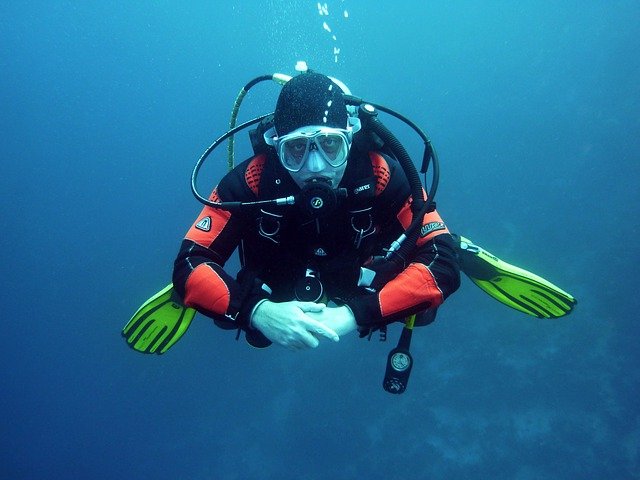Underwater Pumpkin Carving Competition, a Fun Activity with Diving Insurance
A group of scuba divers carved pumpkins underwater as part of an annual competition to see which artist created the most unique carving. While most of the divers were experienced, this isn’t something readers should try at home unless they have the proper training. Diving trips carry many risks that can be covered with scuba-specific insurance.
Underwater Pumpkin Carving
The artists dove beneath the waters of the Florida Keys National Marine Sanctuary last Sunday for the annual competition. Armed with only their dive knives and some other specialized carving tools, each diver had limited time to design and cut out their masterpiece. However, the catch was that they also had to hold down their pumpkins and prevent them from floating up to the surface.
Besides the event photographer, who also went underwater to document the event, several of the local marine species swam by to watch the show. The bits of pumpkin skin and seeds that floated away from the carving served as a welcome snack to the fish.
Ultimately there could only be one winner, and that was Chicago resident Dan Eidsmoe, who went all out with his shark’s cave artwork. The piece included a plastic shark, as well as a strobe light that any cave wouldn’t be complete without. He won an all-expense-paid trip at Amoray Dive Resort, which also sponsored the competition.
These types of activities may be attractive to those who have never practiced scuba diving, but it’s important to realize there’s more to it than pumpkin carving. Diving carries real risks that can affect those with pre-existing conditions, such as asthma, among others.
Trouble Breathing
One of the most delicate aspects of diving is balancing body pressure with the pressure of the surrounding water. This could cause complications or trigger episodes in asthmatic people who have more severe conditions.
For example, during the ascent to the surface, air expands inside the lungs which means the airways need to be unobstructed to let it pass through. However, bronchospasm could occur which causes the constriction of the bronchi (airways) and prevents the air from passing. This could potentially cause a lung rupture or air embolism.
While it’s rare for most people with controlled asthma to experience such episodes, it’s worth it to think about a safeguard against consequences. Scuba diving travel insurance is a good option that covers this specific activity and can help with all of the associated costs.
Insurance for Divers
Diving insurance can cover medical costs that are results from diving accidents such as transportation to and from hospitals and other health facilities. Some problems arising from such situations can have very high costs due to the specialized nature of the treatment.
One common example is failing to ascend correctly (too quickly) and not letting body pressure adjust correctly. This requires rehabilitation in a recompression chamber from the resulting decompression sickness, or ‘bends’. Additionally, the physical cost can also be high. Accidents can result in partial or complete disability, and in the worst case death. In this case, the insurance policy can sometimes cover the repatriation of remains.
Notably, many insurers don’t cover diving since it is considered “hazardous”, although some policies can offer “sports rider” policies that allow these types of extreme sports. That’s why it’s important to know the extent of the coverage and get the right plan. Diving can be a fun sport and it’s made better without worrying about all the potential risks and costs associated with it, and just focus on the pumpkin carving.

